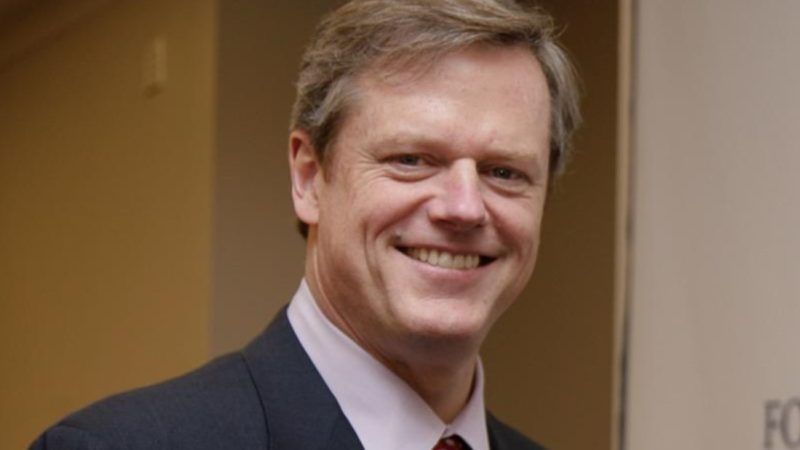Despite COVID-19 Lockdowns, Licensed Marijuana Sales Continue in the Vast Majority of States With Legal Pot
Massachusetts is the only state that has closed recreational outlets while allowing medical sales to continue.

Measured by marijuana sales, 4/20 came early this year as cannabis consumers scrambled to stock up, apparently worried that COVID-19 lockdowns might cut off their legal supply. After local governments in the San Francisco Bay Area imposed stay-at-home orders in March, The New York Times reports, sales of edibles "surged to levels typically only seen around April 20, or '4/20,' the annual, if unofficial, marijuana appreciation holiday."
That initial panic, which the chief executive of a medical dispensary in Pennsylvania likened to "hoarding toilet paper," seems to have subsided now that the legal status of marijuana sales under state and local lockdowns has been clarified. The vast majority of states where cannabis is legal have deemed marijuana merchants "essential," meaning they are exempt from business closure orders, although new restrictions may apply.
According to a tally by Marijuana Business Daily, medical dispensaries are exempt from business closure orders in 28 of the 33 states that allow patients to use cannabis for symptom relief. Of the 10 states that have legalized recreational sales, eight are allowing them to continue. Licensed recreational stores have not opened yet in Maine, although it has been four years since voters approved them. Only Massachusetts has closed recreational outlets while allowing medical sales to continue.
Here is a summary of the rules for marijuana merchants in states that have legalized recreational sales:
Alaska
Recreational and medical marijuana retailers remain open, subject to social distancing rules. The cannabis industry is urging the state to legalize curbside pickup.
California
The Bureau of Cannabis Control notes that Gov. Gavin Newsom's March 19 business closure order "identifies certain services as essential, including food, prescriptions, and healthcare." And "because cannabis is an essential medicine for many residents, licensees may continue to operate at this time so long as their operations comply with local rules and regulations."
Colorado
Gov. Jared Polis is temporarily allowing online sales of marijuana, which means "both Medical and Retail Marijuana Stores may accept and complete online and telephone sales transactions." Colorado's Marijuana Enforcement Division is allowing curbside pickup, as long as it is consistent with local regulations and the transactions occur on private property, as well as sales from drive-through or walk-up windows.
Illinois
Gov. J.B. Pritzker's March 21 business closure order classifies "licensed medical and adult use cannabis dispensaries" as essential. Like other exempt retailers, they have to follow social distancing rules.
Maine
Although a 2016 ballot initiative legalized recreational use, licensed sales to recreational consumers have not begun yet. Dispensaries serving state-approved patients have been classified as essential "medical facilities." Various precautions apply to in-store sales.
Massachusetts
Gov. Charlie Baker is allowing sales to registered patients but has ordered recreational stores to close. "Licensed medical marijuana retailers" are exempt from Baker's March 23 business closure order because they provide essential "health care services." Recreational retailers did not make the cut, although liquor stores did, under the heading of "food and agriculture."
Michigan
Gov. Gretchen Whitmer, who has banned sales of vegetable seeds, paint, and other products she deems nonessential, is nevertheless allowing medical and recreational marijuana sales to continue. Michigan's Marijuana Regulatory Agency is temporarily allowing home delivery and "encourages" consumers to use that option "when applicable." Regulators are also temporarily allowing curbside pickup.
Nevada
The Department of Taxation says "licensed cannabis stores and medical dispensaries will remain open but must adhere to strict social distancing protocol during this time." That means "licensees must not allow individuals to congregate in stores or outside while waiting"; "patient consultations should be limited to phone or video only"; and "consumers are strongly encouraged to utilize delivery services when applicable, or complete orders online or over the phone."
Oregon
The Liquor Control Commission, which also regulates marijuana sales, is temporarily allowing curbside delivery of cannabis products. In-store sales are also permitted. The commission has increased the daily limit from eight to 24 ounces for medical marijuana buyers.
Washington
The Liquor and Cannabis Board says "cannabis producers, processors, retailers and approved labs are considered essential and not required to close due to the coronavirus restrictions." To facilitate social distancing, the board is allowing recreational consumers as well as patients to use curbside pickup. General retailing restrictions, such as keeping customers at least 6 feet apart, apply to in-store sales.
The Times says the exemptions for marijuana merchants constitute "official recognition that for some Americans, cannabis is as necessary as milk and bread." Except in Massachusetts, where it is not even as necessary as booze.


Show Comments (15)